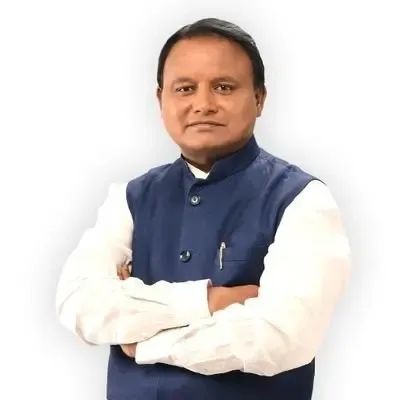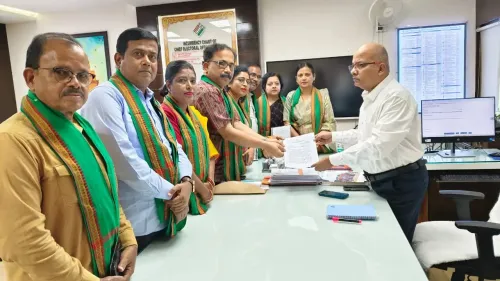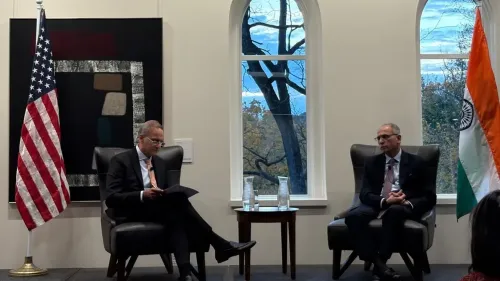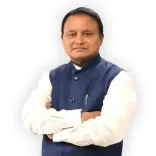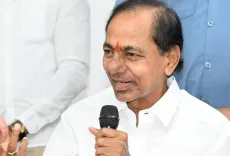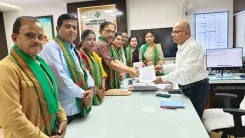How Can Phasing Out Old Vehicles Improve Delhi's Air Quality?
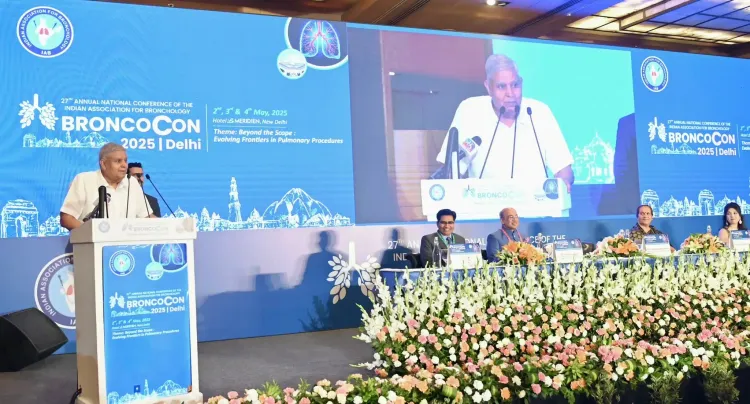
Synopsis
Key Takeaways
- Urgent need to phase out old vehicles in Delhi.
- Public transportation is a cleaner option.
- Integration of technology with health initiatives is crucial.
- Ancient wisdom offers valuable insights into health and nature.
- Collective responsibility is essential in tackling air pollution.
New Delhi, May 3 (NationPress) Vice-President Jagdeep Dhankhar on Saturday highlighted the issue of aging vehicles as a significant contributor to the toxic air in the National Capital, emphasizing the urgent need for a united and serious effort to tackle this health crisis.
Speaking at the 27th Annual National Conference of the Indian Association for Bronchology, Dhankhar insisted, “We require an expedited phase-out of old vehicles. Individuals must recognize that retaining an old vehicle poses risks to our health.”
He voiced concern over the escalating levels of air pollution, stating that the city’s air pollution index continues to deteriorate beyond acceptable limits.
“What is alarming is our lack of seriousness about this issue. Much like climate change — a threat to our existence — we have no alternative planet. Yet, many believe it’s someone else’s responsibility. This is a collective responsibility for everyone. We are on the brink,” he remarked.
Urging the removal of old vehicles, Dhankhar noted, “Just because an old vehicle operates on the road does not guarantee its safety.”
He encouraged Delhi residents to take pride in utilizing public transportation. “We should embrace public transport with pride. Our pride should not hinder our choices. In many countries, this is commonplace, and here too, the Metro offers the safest, quickest route to the airport, which we need to normalize.”
Highlighting the importance of merging technology with medical expertise, he stated, “We must connect medicine with data science, environmental studies, engineering, and artificial intelligence. Disruptive technologies have infiltrated our homes, lifestyles, workplaces, and research facilities.”
“The impact of disruptive technologies surpasses that of previous industrial revolutions. However, challenges must be transformed into opportunities. I believe it’s a misconception that employing this technology will diminish job opportunities. Instead, we must harness technology for our benefit,” the Vice President explained.
Reflecting on ancient wisdom for optimal pulmonary health, Dhankhar remarked, “Our traditional knowledge teaches us that respiratory health is intertwined with the balance of nature.”
“It is crucial for us to return to our heritage and wisdom. This is our treasure, acknowledged globally. We must explore indigenous practices of seasonal living,” he concluded.

